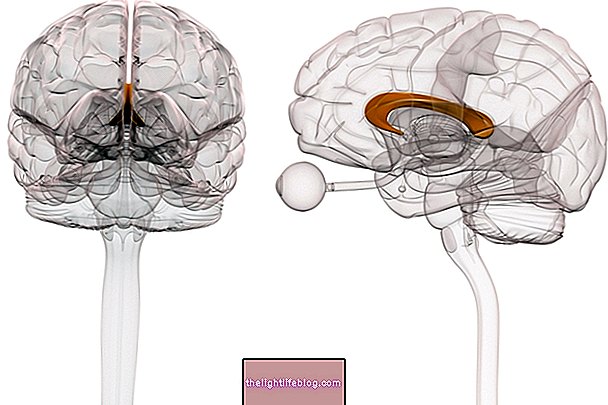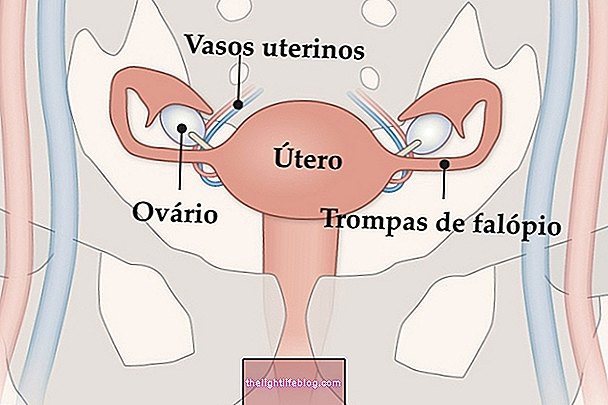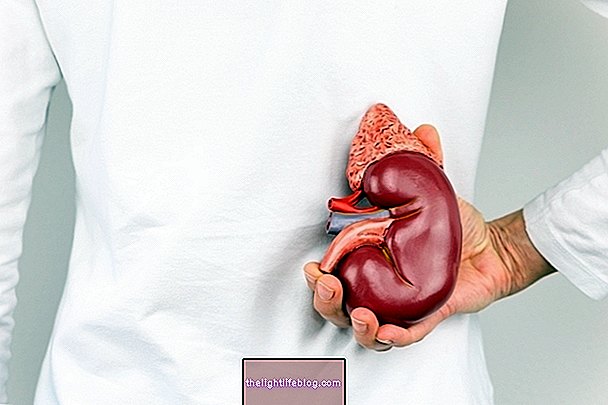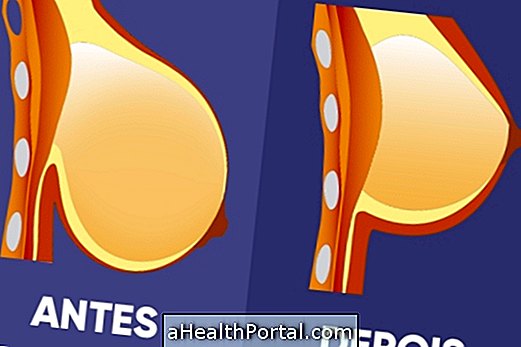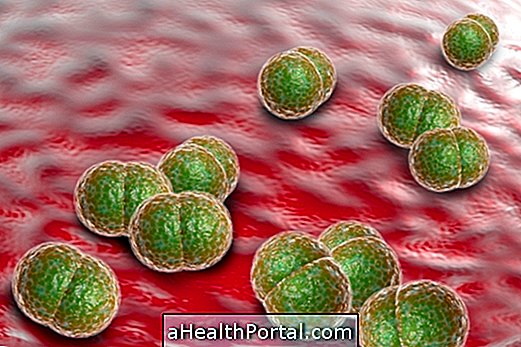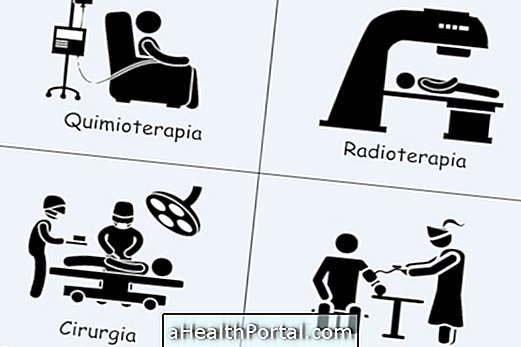There are more than 55 medical specialties and it is therefore important to know which doctor to seek for specialized treatment.
Generally speaking, the general practitioner is the most suitable doctor to perform a check-up or to start the diagnosis and treatment of diseases. When there is a problem or illness that needs more specific treatment, the general practitioner usually makes the referral to the most appropriate specialty.

To find out which doctor you should consult, write down your symptom or the part of the body you need to treat:

The following indicates which is the best doctor who should treat some of the most common diseases:
Most common medical specialties
The most common medical specialties include:
1. Psychiatrist
Psychiatry is the specialty that deals with various psychological disorders such as anxiety, depression, panic syndrome, eating disorder, nervous breakdown, schizophrenia, bipolar disorder, obsessive compulsive disorder, personality disorders, hypochondria, post-traumatic stress disorder, chemical dependency or Borderline, for example.
This doctor is qualified to prescribe medications such as anxiolytics, antidepressants or antipsychotics, for example, and in some cases, can do psychotherapeutic follow-up or work together with a psychologist to give a comprehensive treatment to the person.
2. Urologist
The urologist is the doctor who treats diseases related to the kidneys, bladder, urethra of men and women, and male problems of the testicles and penis.
This is the doctor who must perform the prostate exam, in addition to being the specialty indicated for treating male impotence, urinary incontinence, infertility, candidiasis, phimosis, prostatitis or balanoposthitis, for example.
In addition, the urologist also makes diagnosis and treatment of male STDs, such as HPV, gonorrhea, genital herpes, syphilis, trichomoniasis, soft cancer or pelvic inflammatory disease.
The urologist is also responsible for kidney transplant surgery.
3. Ophthalmologist
The ophthalmologist is the doctor who takes care of health and diseases related to the eyes such as glaucoma, macular degeneration, retinal detachment, hordeolus, pterygium, eye injuries or eye cancer.
In addition, the ophthalmologist is the doctor who makes the diagnosis and prescribes prescription glasses for vision problems such as myopia, hyperopia, presbyopia or strabismus, for example.
This medical specialty is also able to perform eye surgery and corneal transplantation.

4. Endocrinologist
This specialty deals with problems related to the functioning of the endocrine glands such as thyroid, pancreas, pituitary or adrenal gland, which can cause diseases such as hyper or hypothyroidism, diabetes, prolactinoma or pheochromocytoma.
Generally, medical evaluations are made through laboratory tests to measure the levels of hormones in the blood, as well as imaging tests to confirm the diagnosis, such as ultrasound or computed tomography, for example.
See more information on when to go to the endocrinologist.
5. Pediatrician
The pediatrician is the doctor who takes care of the health and problems related to children, from birth to 18 years of age.
This specialty is responsible for the integral assessment of the development of children and adolescents, from vaccines, food, psychomotor development to the treatment of diseases such as common childhood infections.
It is important to consult the pediatrician if the child has signs and symptoms such as diarrhea, fever that does not improve, irritation in the baby or to clarify doubts about the feeding of the newborn to avoid complications and ensure the health of the child and adolescent.
6. Orthopedist
Orthopedics is the specialty that takes care of diseases in the spine or bones such as herniated disc, parrot's beak, sprains, arthritis and osteoarthritis, for example.
In addition, orthopedists can treat bone fractures and perform orthopedic surgery.

7. Gastroenterologist
Gastroenterology is the medical specialty that treats problems that affect the gastrointestinal tract and that includes esophagus, stomach, large intestine, small intestine, liver, gallbladder and pancreas.
Thus, the most common diseases treated by the gastroenterologist are fatty liver, gastritis, gastric ulcer, gastroesophageal reflux, irritable bowel syndrome, Crohn's disease, hepatitis, cirrhosis, pancreatitis or cancer of the stomach, esophagus, liver or intestine.
The gastroenterologist is also the doctor who usually makes the diagnosis of gluten intolerance and the referral to the nutrologist or nutritionist for the changes in diet necessary in this disease.
8. Otorhinolaryngologist
This specialty deals with problems related to the throat, ears and nose, such as pharyngitis, hoarseness, labyrinthitis, problems in the nose, laryngitis, tonsillitis or swollen adenoids, for example.
In addition, the otorhinolaryngologist can also treat snoring and sleep apnea, which usually includes other specialties such as pulmonologist and neurophysiologist.
9. Proctologist
It is the doctor who treats diseases that affect the large intestine, rectum and anus, such as hemorrhoids, anal fissures or anal fistula.
The proctologist can perform digital rectal examination, make the clinical evaluation and, in some cases, order tests such as anoscopy, rectosigmoidoscopy, colonoscopy and biopsies. This medical specialty is also able to perform surgery such as colorectal laparoscopy, for example.

10. Obstetric gynecologist
The gynecologist is the doctor who treats diseases related to the female reproductive system, such as candidiasis, vaginal discharge, polycystic ovary, endometriosis, uterine fibroids or urinary tract infections in women.
In addition, this specialty also treats STDs in women such as HPV, genital herpes, gonorrhea or syphilis, for example.
The exams performed by the gynecologist may include pap smears or colposcopy, and some imaging exams may be ordered such as ultrasound, MRI or hysterosalpingography.
The gynecologist, also known as obstetrician-gynecologist, is the doctor responsible for monitoring the pregnant woman and can order tests such as ultrasound, blood or urine tests, in addition to assessing the baby's development and the woman's health until delivery.
11. Dermatologist
The dermatologist is the doctor who treats skin, hair and nail diseases, such as ingrown toenails, herpes zoster, acne, excessive sweating, hair loss, dermatitis, skin allergy, nail fungus or skin cancer, for example.
In addition, the dermatologist can perform aesthetic procedures such as laser hair removal, peeling, botox application or filling with hyaluronic acid.
12. Nephrologist
Nephrology is the medical specialty that diagnoses and treats kidney-related problems, such as kidney stones, severe urinary tract infection or kidney failure, for example.
The nephrologist is the doctor who monitors and treats hemodialysis and kidney transplants.

13. Rheumatologist
The rheumatologist is the doctor who treats rheumatic or autoimmune diseases of the joints, bones, tendons, ligaments or muscles such as fibromyalgia, tendonitis, rheumatoid arthritis, osteoarthritis, systemic lupus erythematosus, gout, rheumatic fever, osteoporosis or ankylosing spondylitis, for example.
14. Surgeon
This medical specialty is responsible for performing surgical procedures, mainly on the abdomen. However, there are other surgical specialties such as neurosurgeon, cardiothoracic surgeon, cancer surgeon or pediatric surgeon, for example, who perform surgery in specific regions depending on the type of disease.
15. Cardiologist
The cardiologist is the doctor who deals with problems related to the heart or blood circulation, such as high blood pressure, cardiac arrhythmia, infarction or heart failure. See more situations in which the cardiologist should be consulted.
In addition, this specialty may request exams to assess heart health such as exercise testing, echocardiogram, electrocardiogram or magnetic resonance imaging of the heart, for example.

16. Pulmonologist
The pulmonologist is the doctor who treats diseases that affect the lungs, such as asthma, bronchitis, pneumonia, chronic obstructive pulmonary disease (COPD), pulmonary emphysema, cystic fibrosis, tuberculosis or lung cancer, for example.
This specialty can perform spirometry or bronchoscopy exams.
17. Angiologist
The angiologist is the doctor who treats circulatory diseases that affect arteries, veins and lymphatic vessels such as varicose veins in the legs, thrombosis, phlebitis or aneurysms.
This specialty is able to perform vascular surgery that includes drying varicose veins in the legs, correcting arterial aneurysms or placing a stent in arterial obstructions, for example.
18. Neurologist
The neurologist is the doctor who treats problems related to the nervous system such as Parkinson's disease, Alzheimer's, multiple sclerosis, sleep disorders, headache, epilepsy, brain trauma, amyotrophic lateral sclerosis or Guillain-Barré syndrome, for example.

19. Allergologist or immunoallergologist
Allergology or immunoallergology is the specialty that treats allergies in any part of the body and can be respiratory allergies such as allergic rhinitis, skin allergies such as dermatitis, food allergies such as allergies to shrimp or peanuts, for example.
20. Hepatologist
The hepatologist is the doctor who takes care of the liver and so it is the specialty indicated for when there are problems that affect this organ such as cirrhosis, liver fat, jaundice, pancreatitis, hepatitis or liver cancer, for example.
In addition, this medical specialty is responsible for surgery and treatment of liver transplantation.
Was this information helpful?
Yes No
Your opinion is important! Write here how we can improve our text:
Any questions? Click here to be answered.
Email in which you want to receive a reply:
Check the confirmation email we sent you.
Your name:
Reason for visit:
--- Choose your reason --- DiseaseLive betterHelp another personGain knowledge
Are you a health professional?
NoMedicalPharmaceuticalsNurseNutritionistBiomedicalPhysiotherapistBeauticianOther


